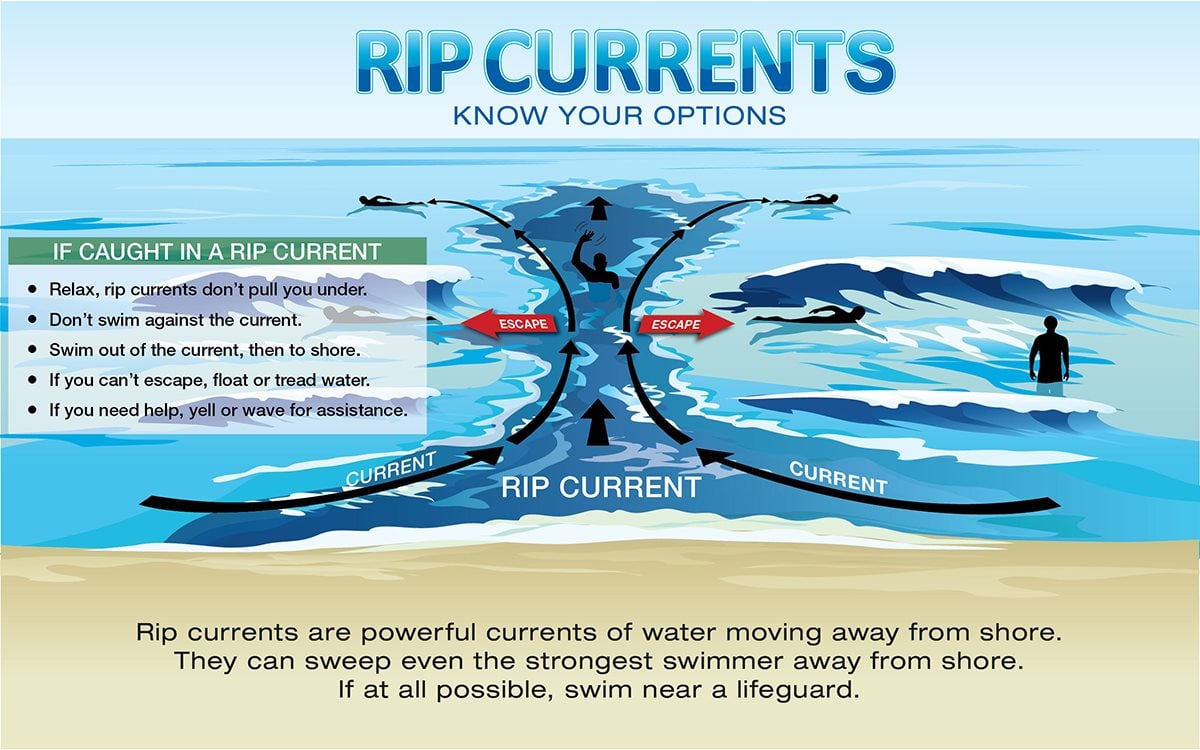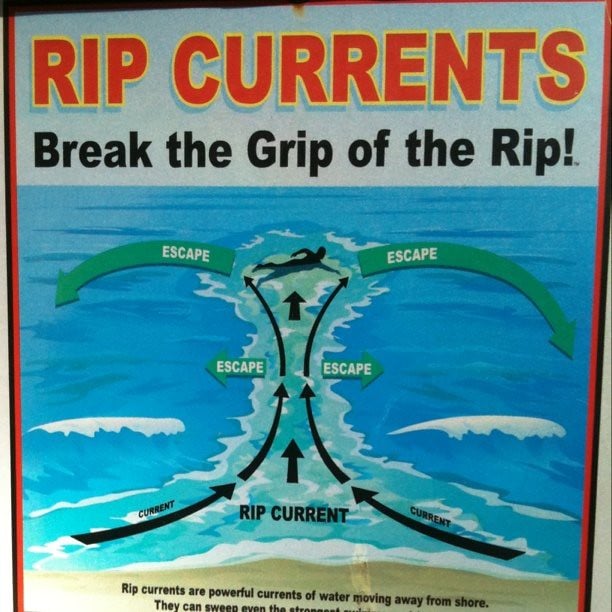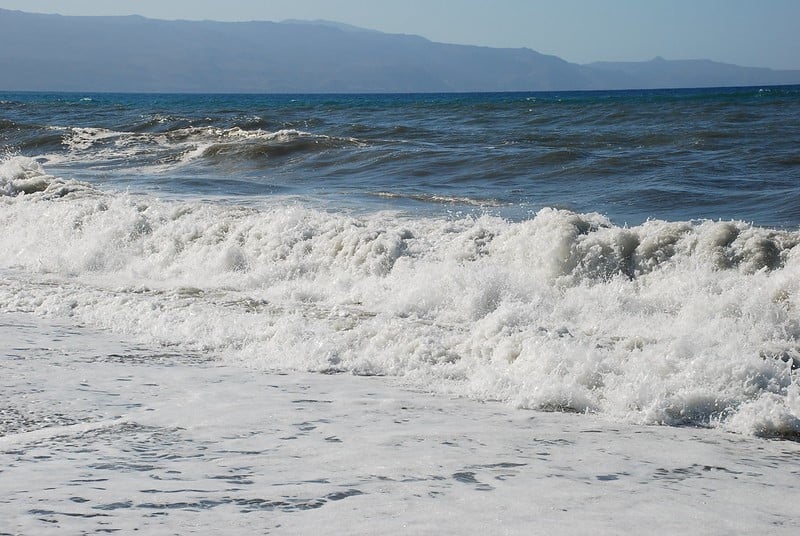Ministry since the inauguration has felt like a riptide for many clergy. Here are five ways to survive and keep your head above water.

In 2020, I co-founded a network called the Clergy Emergency League during the first Trump term to help pastors navigate the choppy sea of ministry during that time. Five years later, we’re thrust back into even more dangerous waters that are putting a severe strain on ministers.
Three weeks after the inauguration, we gathered with 100 progressive Christian clergy in an online meeting and asked how they’re feeling.
Here is the list of what was said most frequently:
Overwhelmed
Exhausted
Challenged
Stressed
Scared
Heaviness
Walking a fine line
Yes, it’s been a difficult time for clergy.
In a survey my team and I are conducting on ministry, preaching, and social issues, 60% are reporting feelings of exhaustion and frustration. 90% are reporting high levels of stress, and 68% are feeling burned out. [If you’re a preacher in the U.S. you can take the 15-minute survey here.]
Ministers are trying to navigate multiple crises in their congregations brought on by the executive orders, an administrative coup, and the enactment of Project 2025.
Taken together, these actions are targeting immigrants, transgender persons, persons of color, the environment, and all citizens who pay taxes and have Social Security numbers. In other words, we’re all under attack.
Especially alarming for many clergy are Elon Musk’s false accusations of money laundering aimed at churchwide and denominational social service agencies. These organizations have been contracted by the federal government for decades to care for the most vulnerable in our society, which is exactly what Jesus commands us to do. So, these outrageous lies not only sting, they also put all churches at risk.
The firehose
Nearly everyone on the call acknowledged that the barrage of events has felt like a firehose.
This is intentional.

The firehose is a tactic of authoritarian regimes. It’s called “flooding the zone.” When attacks overwhelm us in volume and speed, there’s not enough time and human resources to organize.
The firehose also confuses the public and keeps them off-balance. When people are in perpetual crisis mode, it compromises their ability to think clearly due to exhaustion.
Also, the firehose is a distraction from power grabs behind the scenes. When we’re constantly reacting to the manufactured crisis du jour, we don’t see what’s happening just beyond our view to undermine and dismantle our social infrastructure.
So how can clergy survive the onslaught of Trump’s authoritarian regime?
Beware of the riptide
A helpful metaphor for framing what is happening is the image of a riptide or rip current.
Rip currents are powerful channels of water along ocean beaches that occur when tides move away from the shore.

These rip current can sweep even the strongest swimmer out to sea and cause them to drown.
Each attack from Trump and his minions creates a rip current of intense fear and emotions that can drag us under and pull us away from the safety of solid emotional, physical, and spiritual ground.
So how can clergy survive the riptide of Trump 2.0?
Lifeguards offer five tips for surviving rip currents in the ocean. When applied to ministry in this intense and demanding time, this advice can be helpful to clergy as well.
1 – Stay Calm
When a swimmer notices how far they are from the shore, they often panic. They frantically try to swim against the rip current, but this leads to exhaustion. And when your body is depleted, you are at risk of drowning.
The key, then, is to stay composed. Quell the urge to flail around or swim against the current. Instead, take deep breaths, keep your head above water, and assess your options.
The same applies to ministry in a riptide.
When we’re responding to so many crises and suddenly notice how far from shore we are, we might panic. We frantically try to swim against the current, as it were, and exhaust ourselves in the process. Moreover, we may feel guilty that we’re not doing more, fighting harder, being stronger. But these feelings will deplete us even more, and our ministry will be at risk of drowning.
So, ministers need to stay calm and “float” to conserve energy. Tamp down the urge to do more and more by swimming against the current. Instead, take deep breaths. Pray, meditate, read Scripture, sing hymns, walk in nature, journal, or whatever keeps your head above water and enables you to assess your options.
2 – Swim Parallel to the Shore
Rip currents are actually very narrow channels when you see them from above in relation to the waves on either side. So instead of swimming against the current, swimming sideways and parallel to the shore can help you escape. Swimming at a diagonal direction back to solid ground is a way of working smarter instead of harder.
The same principles work for ministry in a riptide.
When you feel the current of ministry carrying you out to sea, the distance to shore seems impossible to overcome. But the width of the current is, in reality, more narrow than you can see when you’re in the water.
In other words, the crisis is not as wide as it is long.
If you “swim diagonally” in a ministry riptide, you will use your energy wisely, escape from the channel of powerful forces, and eventually make your way back to shore.
Swimming diagonally in a ministry riptide might look like addressing justice issues using alternative forms of noncooperation and nonparticipation instead of direct protest, for example.
In her series, “Planning Our Way (Strategically!) Toward Nonviolent Social Change,” my colleague, Rev. Lauren Grubaugh Thomas, describes five ways to do this kind of diagonal swimming. These include practicing holy imagination, building community, having moral clarity and courage, refusing to consent and comply, and offering the gift of ourselves.
Swimming diagonally while keeping the shore in view is a strategic way for ministers to survive the riptide of an authoritarian regime.
3 – Float or Tread Water if Tired
It might be that you won’t remember the first two tips until you’ve already expended a great deal of energy fighting a rip current you didn’t even realize you were in.
If that’s the case, and you can’t immediately swim out of the rip current, the best thing is to float on your back or tread water until the current weakens. Once you’ve regained your strength and the tide dissipates, you can make your way back to the shore.
Floating and treading water can work for ministry in a riptide as well.
The reality for most ministers is that Sunday comes every week, funerals weirdly come in threes, and pastoral emergencies often occur on your days off.
Add in all the pounding waves from Trump 2.0 that are battering those most vulnerable in your congregation and community (and perhaps even you yourself), and you can find yourself in a riptide without even recognizing it at first. By the time you realize what’s going on, you’re emotionally, physically, spiritually, and mentally depleted.
When that happens, it’s time to float or tread water.
For Type A ministers, this can sound like a cop-out. (I’m speaking from experience here.)
We might repeat biblical verses to ourselves that inadvertently shame us into unwisely swimming against the rip current. Verses like Philippians 5:13: “I can do all things through Christ who strengthens me.” Or Ephesians 6:10: “Be strong in the Lord and in his mighty power.” And even the beloved Romans 8:37: “In all these things we are more than conquerors through him who loved us.”
These are inspirational Scripture passages, no doubt. But the key is to say them to ourselves while resting and recuperating our strength. Don’t let them become siren songs that drive you into even deeper and more dangerous exhaustion.
Trump 2.0 is going to be a long marathon. So, pace yourself.
To quote Billy Joel’s song, “Vienna”:
Slow down, you’re doing fine
You can’t be everything you want to be before your time
Although it’s so romantic on the borderline tonight
Too bad but it’s the life you lead
You’re so ahead of yourself that you forgot what you need
Though you can see when you’re wrong,
You know you can’t always see when you’re right.
So, yes, floating and treading water in a ministry rip current means that you should “take the phone off the hook and disappear for a while,” as the song goes.
Remember the sabbath, keep it holy. Resting is your blessed commandment, so embrace it when you’re in a ministry riptide.
4 – Follow the Current If Needed
All rip currents eventually dissipate. So, if you’re exhausted, you can simply let it carry you until it weakens, then swim parallel and back to shore.
This seems counterintuitive, I know. The feelings of panic can rise up quickly the further you get from shore.
But no riptide lasts forever. Eventually, it expends its energy on its own and no longer has the power to push you away from the shore. In other words, sometimes you just need to “ride it out,” tread water or float, and slowly make your way back to shore.
Because here’s the thing – the waves going toward the shore have their own energy as well.

Once the rip current fades, you can ride the waves back to shore again.
Ministers in a riptide can follow the current as well.
As battering as the waves can be, and as cold and malevolent as that rip current feels, it cannot last forever.
So, if you’re exhausted in your ministry, ride it out, tread water or float, and then slowly make your way back to shore.
If you ride the rip current, you’ll find that it eventually dissipates. By conserving your energy, you can catch other waves that take you back to a place where your feet touch sand again.
5 – Wave & Shout for Help
If you’re struggling in a rip current, signal for a lifeguard to help. Lifeguards are trained to deal with rip currents and how to rescue people who get caught in them.
In this great interview with an ocean lifeguard on Dan Heath’s podcast, What It’s Like to Be . . ., Ed Vodrazka explains how lifeguards learn to read the ocean, see signs of distress in swimmers, and perform rescues on a daily basis.
There’s no shame in calling for help. It’s better to sacrifice your pride instead of your life.
Ministers in a rip current need to ask for help, too.
But there’s a paradox in this, because ministers are often the “spiritual lifeguards” who rescue others. So why should we need to ask for help ourselves?
Vodrazka tells a story in the interview of a time when he made some bold but rash decisions in a rescue attempt that put his own life at risk. So, the rescuer sometimes needs to be rescued.
The same is the case for clergy. We need people who are trained to deal with rip currents and how to rescue us when we get caught in them.
Who are your “riptide lifeguards”?
Maybe it’s a group of clergy you trust. Perhaps a mentor or coach. Maybe it’s a professional counselor or therapist. Or a spiritual director. Any one of these people can be a channel through which you experience God’s attention, care, grace, and mercy in your ministry.
Whoever your lifeguard is, it’s important to keep them in sight when you’re out in the ocean of ministry.
Remember, lifeguards can see the rip currents better than people on the beach because they sit up high in the chairs and have a different perspective. Thus, it’s wise to consult with your lifeguard before you wade out into the surf. And if you find yourself being pulled out by a strong channel of exhausting forces, wave and shout for help.
Rekindling the call to ministry

Other clergy in our meeting reported finding renewed energy, focus, and clarity in these first few weeks after the inauguration. While they acknowledge how demanding ministry is in Trump 2.0, some are discovering deep wells of courage and a heightened sense of vision that is guiding them. Many ministers are realizing that the challenges of this time are rekindling their call to ministry.
Indeed, because of our country’s rapid turn towards authoritarianism, now is the time to step up to the challenge. We must not concede our power or obey in advance. There will be risks, but this is our call. So, we need to develop new skill sets for ministry and respond with agility.
But we also need to be prudent and strategic in how we use our power and our skills.
Whether you are exhausted from the riptide or riding the waves, this time of ministry is unlike any we’ve ever seen in our careers.
So stay calm, swim parallel to the shore, float and tread water when necessary, ride out the current, and always keep your lifeguard in sight.
Your congregation, your loved ones, your community, and God needs and wants you to be healthy in mind, body, and spirit for the marathon of ministry ahead.
- Are you a preacher in the U.S.? You can help me with my research studying ministry, preaching, and social issues during this unprecedented time by filling out this 15-minute survey.
- Thinking of addressing social issues in a sermon? Preachers can take this 5-minute assessment of their strengths and vulnerabilities here.
- Are you a clergy person looking to connect with other Christian leaders in the work of resisting and disrupting Christian nationalism? Check out the Clergy Emergency League, a group I co-founded in 2020.
- Looking for other ideas to fight the coup? Choose Democracy has this helpful article that can be applied to ministers and congregations: What Can I Do to Fight This Coup?
Read also:
11 Lessons for Preachers from Bishop Budde’s Sermon
Immigration Ministry: 8 Things Churches Should Do in 2025
Should I Stay or Go? Post-Election Clergy Soul-Searching
Do Not Be Overcome by Evil: Biblical Wisdom When Attacked
How to Love Your Enemies, Even Fascists & Tech Bro Oligarchs

The Rev. Dr. Leah D. Schade is the Associate Professor of Preaching and Worship at Lexington Theological Seminary in Kentucky and ordained in the ELCA. She is a past president of the Academy of Homiletics. Dr. Schade does not speak for LTS or the ELCA or AOH; her opinions are her own. She is the author of Preaching and Social Issues: Tools and Tactics for Empowering Your Prophetic Voice (Rowman & Littlefield, 2024), Preaching in the Purple Zone: Ministry in the Red-Blue Divide (Rowman & Littlefield, 2019) and Creation-Crisis Preaching: Ecology, Theology, and the Pulpit (Chalice Press, 2015). She is the co-editor of Rooted and Rising: Voices of Courage in a Time of Climate Crisis (Rowman & Littlefield, 2019). Her book, Introduction to Preaching: Scripture, Theology, and Sermon Preparation, was co-authored with Jerry L. Sumney and Emily Askew (Rowman & Littlefield, 2023).
BlueSky: https://bsky.app/profile/leahschade.bsky.social
Facebook: https://www.facebook.com/LeahDSchade/













